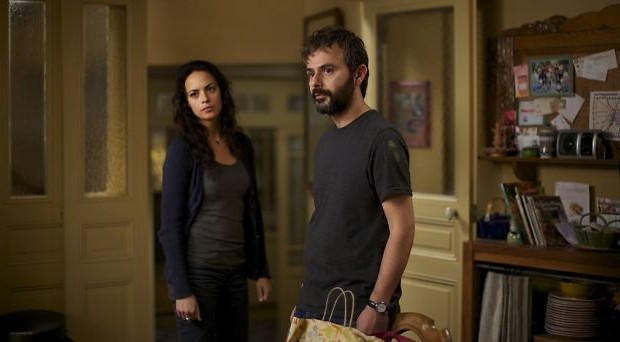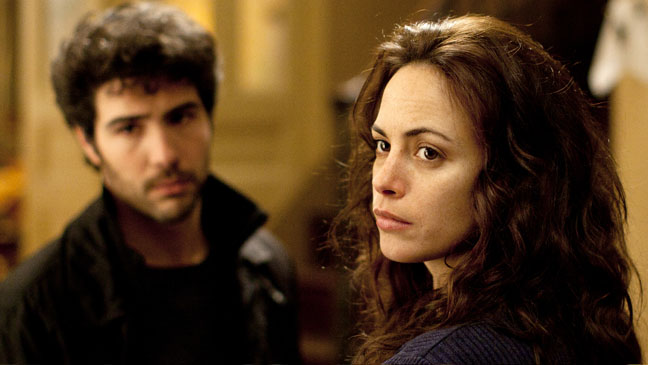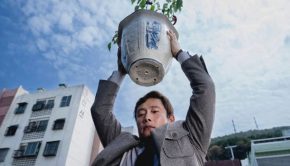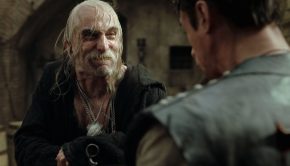The Past – Film Review
Reviewed by Damien Straker on February 6th, 2014
Madman presents a film by Asghar Farhadi
Written by Asghar Farhadi
Starring: Ali Mosaffa, Tahar Rahim, Pauline Burlet and Berenice Bejo
Running Time: 130 minutes
Released: February 6th, 2014
Asghar Farhadi was born in Iran in 1972. He would be old enough to remember some of the country’s defining political events such as the Iranian Revolution. Events such as this, evoking old and new customs, have filtered into the films that he has chosen to make. He has said that men in his films often represent tradition and conservative values. Women because of child birth are seen as more progressive, thinking towards the future, whereas he believes men are more traditional and think of the past. Farhadi is himself forward thinking. He graduated from the University of Tehran, one of Iran’s oldest universities, with a BA in Dramatic Arts and also from the Tarbiat Modares University with an MA in stage direction. These arguably the foundations in his personal history that allowed him to become first Iranian Oscar winner for his Iranian film A Separation (2011), which was about a divorce but more broadly, contrasting views of an incident.
The Past is an Iranian-French film. It is set in France and spoken in French, even though Farhadi is not a natural French speaker. This is fitting because the film is about conflicting perspectives of the truth but also transnational and cultural relations. The film is a mystery about what happened to a man’s wife who is now in a coma. But there’s a greater juggling act involving numerous threads that require you to remember to whom the children belong. The film starts with Ahmad (Ali Mosaffa) being picked up by his soon to be ex-wife Marie (Berenice Bejo). He lives in Iran but is returning to France because he wants to finalise a divorce with her. She has two daughters from a previous relationship. The oldest daughter Lucie (Pauline Burlet) is avoiding being at home because she doesn’t like her mother’s current partner Samir (Tahar Rahim), who stays over sometimes with his young son. Samir’s own wife is in a coma because she tried to commit suicide. The incident involves an argument with a drycleaner Naima (Sabrina Ouazani) and also Lucie somehow.
Building on the way that gender determines values of the past and present, the film is also about how our mistakes in the past collide with the present. Some people will rely on past experiences to deliberately construct social barriers that can conceal their own sense of guilt. Lucie leaving home means that she can avoid her personal feelings for her involvement with Samir’s wife (the past), but it also creates domestic tensions because no one knows where she is (the present). Here lies the moral dilemma: is it better to avoid the past and live with the personal guilt or to risk hurting others by letting them know the truth? There are also more psychological and subconscious ways that the characters call upon the past to affect the present and deliberately sabotage their current day relationships. The mystery also attributes small, everyday situations, like a stained shirt, as being major life turning points that can create a domino effect bringing each character’s past mistakes and their perpetual dilemmas into a present day conflict.
One of the other pivotal themes of the film is communication. Each of the characters fails to hear each other speak, not only through words but their personal desires too. The film opens with the subtle image of Ahmad and Marie caught between a pane of glass at an airport, unable to hear what they are saying even though they can see each other. All of the characters could be described like this particularly through the way that they handle the children in the film with their contrasting parenting styles. Listen to the dialogue in the opening scenes and the way that Ahmad and Marie’s arguments are used to signpost the idea of miscommunication. They argue about who was meant to have to booked a hotel for Ahmad and who failed to read the emails. Modern technology like email takes a lot of the blame in the film for conflict and misinterpretation, which could be reflective of reflective of Farhadi’s own conservatism.
There are also some beautifully realised scenes in the film where we see the way that people act and communicate differently with children. Bejo’s character is surprisingly physical, angry and dogmatic with Samir’s son, whereas Ahmad is more pragmatic and calm and can talk to the children easier. It also creates some gripping tension between these two men who have different ideas about dealing with their children. A beautiful static wide shot of them sitting at a table looking away and not speaking to each other is more expressive than any shouting match. I responded to Ahmad’s character the most because unlike the other actors he didn’t seem as gloomy as some of the other characters. It’s problematic that on a first viewing he seems to be marginalised towards the end of the film when he is the main character. In spite of the convoluted nature of the narrative and its various story threads, the final image is the most simple and hopeful of the whole movie, suggesting that grief can also act as a uniting emotion of love as much as a divisive one.
Summary: The film is about conflicting perspectives of the truth but also transnational and cultural relations.









